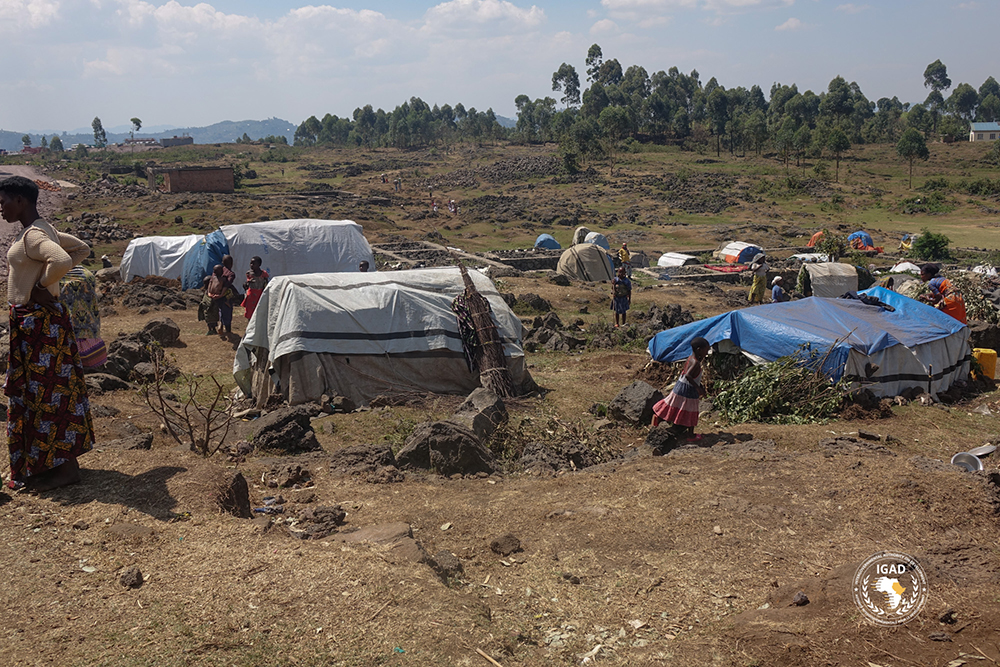The Intergovernmental Authority on Development (IGAD) region, encompassing East Africa, faces a significant challenge, hosting nearly five million refugees and asylum seekers.
Uganda stands out as a prime example of the spirit of solidarity with refugees as a beacon in a region strained by displacement.
Teresa Diing, the capacity building officer refugee protection and asylum law at IGAD highlighted, the region’s remarkable solidarity.
Diing said the cornerstone of IGAD’s strategy is education, as the Djibouti Declaration pledges to provide refugees with inclusive and equitable education, a path towards self-reliance and integration.
“Recognising prior learning and qualifications ensures refugee children aren’t left behind. This initiative strengthens not only refugee prospects but also host communities’ education systems, fostering peaceful coexistence,” she said.
In addition, the Kampala Declaration tackles economic empowerment by promoting refugee inclusion in labor markets and facilitating access to skills training and entrepreneurship opportunities.
Diing said IGAD empowers refugees to build a future for themselves through public-private partnerships that are encouraged to create sustainable jobs and improve livelihoods for both refugees and host communities.
Regarding healthcare for all, the Mombasa Declaration addresses the need for accessible healthcare for refugees and host communities alike.
“Strengthening health systems, improving disease surveillance, and bolstering infrastructure in border areas are crucial steps as this ensures refugees receive the care they need while safeguarding the health of host communities,” Diing added.
IGAD member states, including Uganda, have a long history of upholding the right to seek asylum. The IGAD Policy Framework on Refugee Protection outlines a comprehensive approach to ensure refugee safety and well-being.
Legal and social protection, access to justice, documentation, and basic services are all emphasized to foster a supportive environment for refugees across the region.
Uganda’s refugee hospitality model
According to Diing, Uganda exemplifies IGAD’s ideals.
She said with over 1.6 million refugees, the highest number in Africa, Uganda embodies true solidarity.
Despite the strain on resources, the government remains committed, according to Douglas Asiimwe, Commissioner for Refugees at the Office of the Prime Minister (OPM).
Focusing on self-reliance
However, Asiimwe also recognised that challenges remain. He acknowledged the need to shift focus towards self-sufficiency for refugees.
He said that livelihood programmes are crucial to reduce reliance on aid and empower refugees to meet their basic needs.
Stephen Odaro Padde, PLAVU’s executive director said funding remains a critical issue for refugees. He highlighted the need for innovative financial products tailored to refugees and informal workers, enabling them to access the capital needed to grow their businesses.
He said collaboration between government agencies, international organizations, and the private sector is essential for strengthening support systems.
Untapped refugee market
Despite the challenges, a glimmer of hope emerges as a 2021 report by the International Finance Corporation (IFC) estimates Uganda’s refugee market to be worth shillings 1.7 trillion.
This spending power highlights the economic potential refugees hold. Odaro said that by harnessing this potential, both refugees and host communities can thrive.
Meanwhile, Diing said there is need for a future built on solidarity. He said Uganda’s unwavering commitment to refugees, coupled with IGAD’s holistic approach, offers a beacon of hope in a region grappling with displacement.
“Through continued investment in education, economic empowerment, healthcare, and protection, a future can be built where refugees are not just welcomed, but empowered to contribute and flourish,” she said.
Refugee challenges
Hassan Muhammad, a refugee from Somalia decried challenges of delayed identity card processing, which he said excludes them from accessing services including health care, education, employment, among others.
“This is the major challenge we face. We have very many refugees from Somalia that are unregistered and have no access to IDs. As a result, sometimes some of them are even arrested ad criminals,” he said.
But even worse, Hassan said, is the fact that without an ID, they cannot engage in any self-sustaining venture, like a business for them to survive. He said that government needs to fast track the processing of refugees Identification Cards.
Other refugees decried challenges including the lack of basic infrastructure, clean water, enough public toilets, education, among others.
They also said that they often struggle to access healthcare due to the distance of facilities and language barriers in addition to the lack the capital to start income-generating businesses or the legal aid needed to protect themselves from violence.
Refugee statistics
The 2024, statistics from the Office of the Prime Minister (OPM) indicate that Uganda now hosts refugees from over 27 countries with a total number currently over 1.6 million refugees.
This number is the highest in Africa. In 2023 alone, 99,052 refugees and asylum seekers arrived in Uganda, and a total of 245,811 persons have arrived since 2022.
Financing gap
Odaro said that by working together, governments, international organizations, and the private sector can ensure that no one is left behind.
He added: “Developing innovative financial products tailored to the needs of refugees and informal workers, ensuring they can access the capital required to grow their businesses”.
The UNHCR’s 2023 report highlighted funding gaps, with only 28% of the required financing available by July 2023 for refugee response.
According to the 2024 Uganda’s 3rd Voluntary Review National Report on the Implementation of the 2030 Agenda for Sustainable Development, this huge number of refugees, combined with a relatively high population growth rate of 3%, puts pressure on the limited-service infrastructure, including health facilities, schools, and water and sanitation facilities in the host communities and settlements, currently in 12 districts of the Country.
Odaro said that through our partnership with Rebuild Uganda, a programme being under the International Rescue Committee (IRC), they have provided business training, mentorship, and financial support to over 5,000 refugees and informal workers, enabling them to start and grow their businesses.
Asiimwe reiterated that government will continue to mobilise resources for the refugee programme through various engagements.
Source link : https://www.newvision.co.ug/category/news/igad-commends-uganda-on-refugee-response-NV_192887
Author :
Publish date : 2024-07-26 16:41:48
Copyright for syndicated content belongs to the linked Source.
